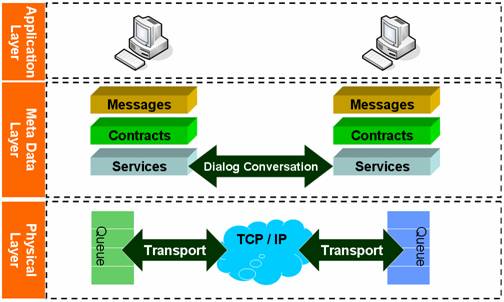I had high hopes for Service Broker when it was introduced in SQL Server 2005, but it doesn’t seem that many people have bothered to architect their applications to take advantage of it. I do see some people starting to use it, but it hasn’t been anywhere near the levels of adoption that I would expect.
I ran across a piece on 10 reasons to use a message queue that points out a number of possible ways that queuing could help you. There are some great ideas, including a few suggestions for scalability and resiliency for your application. One of the more interesting ones to me is the idea of using a queue to buffer the slower processes that may be a bottleneck in your application.
I still think this is a great way to build applications, especially distributed ones, using queues instead of linked servers, ETL, etc. However until we get more people developing in a service oriented architecture, and getting experience, I think we will struggle to see message queuing gain widespread acceptance. This is a departure from the way most developers are comfortable with building an application, and the way that queues work in SQL Server certainly confuses many DBAs.
I'd challenge many of you to think about using queuing in any applications where you are moving data from one database to another, or trying to trigger an action on a remote machine. It's a great way to scale out your systems, and it's a very solid, reliable architecture for your systems.
Steve Jones
The Voice of the DBA Podcasts
We publish three versions of the podcast each day for you to enjoy.
- Watch the Windows Media Podcast - 16.6MB WMV

- Watch the iPod Video Podcast - 16.3MB MP4

- Listen to the MP3 Audio Podcast - 3.3MB MP3


The podcast feeds are available at sqlservercentral.mevio.com. Comments are definitely appreciated and wanted, and you can get feeds from there. Overall RSS Feed: ![]() or now on iTunes!
or now on iTunes! ![]()
Today's podcast features music by Everyday Jones. No relation, but I stumbled on to them and really like the music. Support this great duo at www.everydayjones.com.
You can also follow Steve Jones on Twitter:




